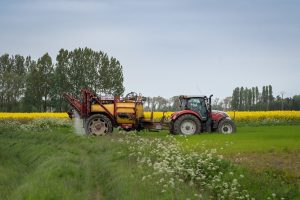Food Supply Chain Management Workshop
Course Fee:
OBJECTIVE
Food Supply Chain Management and Logistics Training course aims to provide particpants with the necessary technical knowledge in order to support the safe production of food within their roles. The course acknowledges the importance of a holistic, all-encompassing farm-to-fork supply chain focus across the food sector.
CONTENT
Food Production
• Entities in the agriculture supply chain.
• Agriculture and poverty alleviation.
• The barriers to the development of the agri-industry.
• Future steps for the agriculture sector.
• Case example: Cargill works with producers on finance and risk management.
• Case example: Nestlé works with dairy farmers.
• Case example: ITC Ltd India empowers farmers through technology.
• Case example: Microfinance models within the food sector.
Food Manufacturing
• The importance of food processing.
• Changing market conditions.
• Food processing.
• Food packaging.
• Inventory management.
• Food safety.
• Procurement.
Operational challenges – Food retailing
• The retail environment.
• How does the food reach the consumer?
• Online grocery retailing.
• Challenges to the future of food retailing.
• Case example: Retailers turning more to ‘dark stores’.
Food Logistics
• Movement of food.
• ICT future trends in agri-food logistics.
• Packaging in logistics.
• Temperature-controlled supply chains.
Challenges in international food supply chains
• International food supply chains.
• Factors affecting the future of international food systems.
• Managing challenges in international food supply chains.
• International politics and food 91.
• Collaboration and relationships.
• Trends in supply chain relationships.
• Current relationship models within the food sector.
• Other trends within supply chain collaboration.
Food sourcing and procurement
• Sourcing.
• Sourcing models.
• Purchasing models.
• Supplier segmentation.
• Supplier development.
• Strategic sourcing.
• Sustainable procurement.
Risk management
• Risk management and uncertainty.
• Risks in the supply chain.
• Risks in the food supply chain.
• Managing supply chain risks.
• Managing risks in food supply chains.
Technology trends in food supply chains
• Traceability and use of technology.
• Food production.
• Food processing in a technological context.
• Food packaging in a technological context.
• Food logistics.
Methodology
The training methodology integrates lectures, interactive discussions, collaborative group exercises, and illustrative examples. Participants will acquire a blend of theoretical insights and hands-on practical experience, emphasizing the application of learned techniques. This approach ensures that attendees return to their professional environments equipped with both the competence and self-assurance to effectively implement the acquired skills in their responsibilities.
DATE:
1ST BATCH: 10th – 13th Mar, 2026
2ND BATCH: 30th Jun – 3rd Jul, 2026
3RD BATCH: 27th – 30th Oct, 2026
Course Category
- Human Resource and Admin
- Finance and Accounting
- Internal Audit and Fraud Control
- Stores, Procurement and Supply Chain
- Information Technology
- Aviation and Maritime
- Banking, Investment and Insurance
- Business Communication
- Construction Management & Civil Engineering
- Engineering, Instrumentation and Maintenance
- Entrepreneurship and Business
- Hotel & Hospitality Management
- Law and Contract Management
- Management and Leadership
- Project Management
- Public Relations
- Public Sector
- Sales, Marketing & Customer Service
- Secretaries & Personal Assistants
- Transport & Logistics
- Security and Safety
More Courses
VENUE
25, Queen street, Alagomeji Bus Stop, Yaba, Lagos








